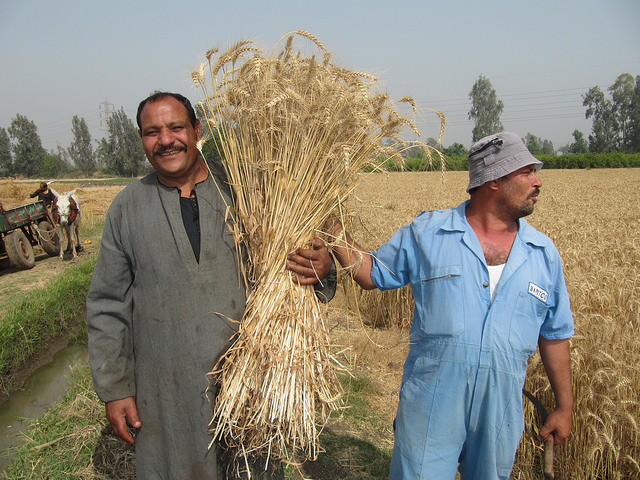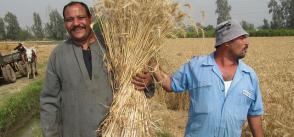
Building resilience of smallholder farmers in Egypt
The collaboration between ICARDA and Egypt’s Agricultural Research Center aims to boost resilience and enhance food security in the region.
The 2018 annual meeting of scientists and leadership from ICARDA and Egypt’s ARC, short for Agricultural Research Center, was an opportunity to take stock of the results that have been achieved in the past three years thanks to the partnership. It was also a chance to renew commitment for collaboration for the next three years.
“We’ve been working together to strengthen the resilience of Egypt’s agricultural sector and smallholder farmers,” said Aladdin Hamwieh, ICARDA’s biotechnologist and regional coordinator for Nile Valley and Red Sea.
“By developing improved varieties and innovative technologies, we are trying to raise productivity, especially as the temperatures rise and water becomes scarce.”
Four programs comprise the ICARDA-ARC Egypt collaboration program: wheat improvement, faba bean improvement, integration of barley seeds with small-ruminants breeding, and optimizing water productivity. All the programs aim to boost capacity development of individual scientists and ARC. The new varieties are disseminated to other countries free of charge. And the scientists collaborate to publish their work in high-ranking journals.
On wheat improvement, ICARDA and ARC have identified more than 30 candidate lines that are high yielding and resistant to rusts and heat stresses. These genotypes are being tested across four locations in Egypt before they can be released. Additionally, more than 50 spring bread wheat varieties have been released in countries in Central West Asia and North Africa, as well as in sub-Saharan Africa.
Read the full article via ICARDA.
[Photo by ICARDA | Flickr]







